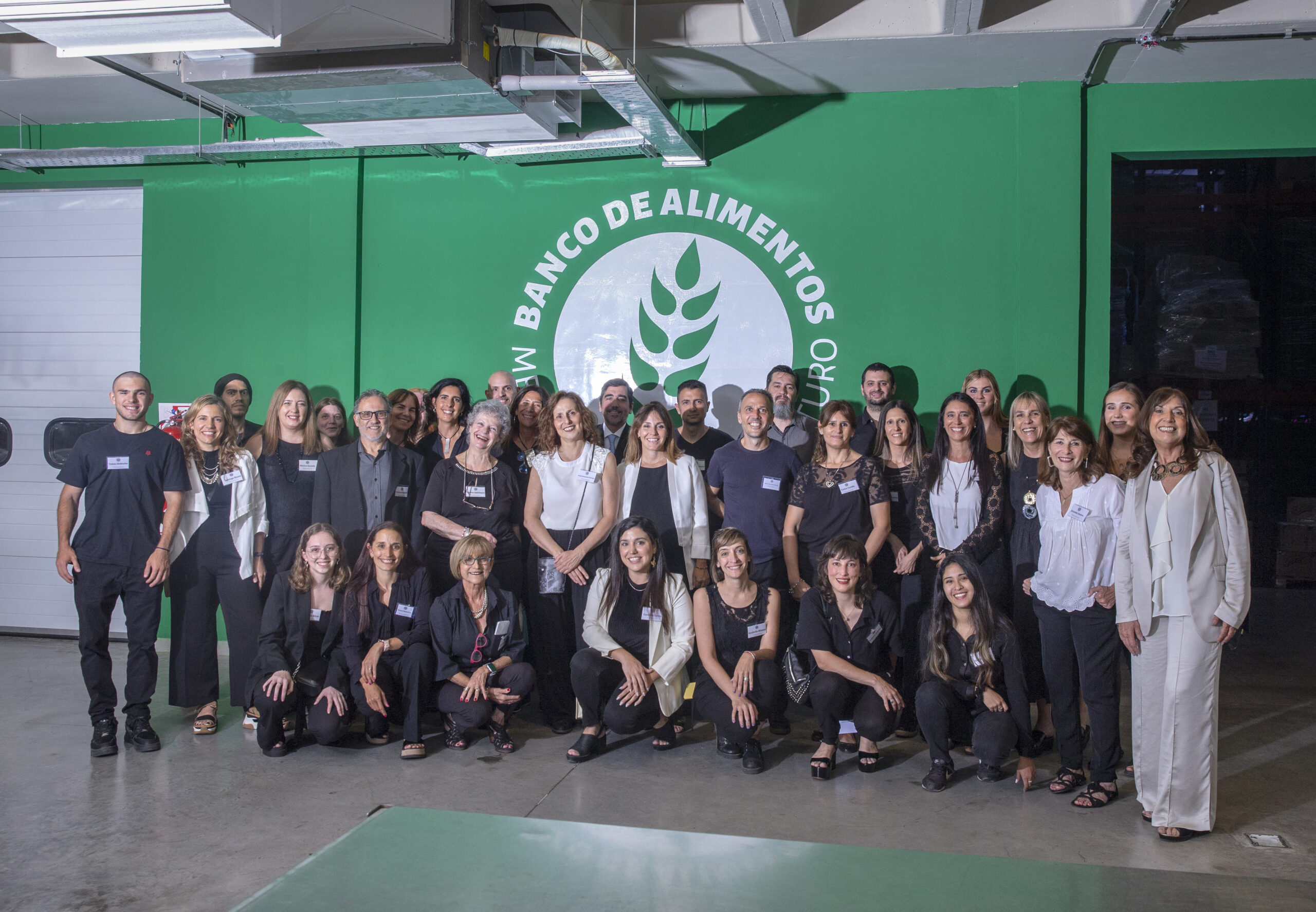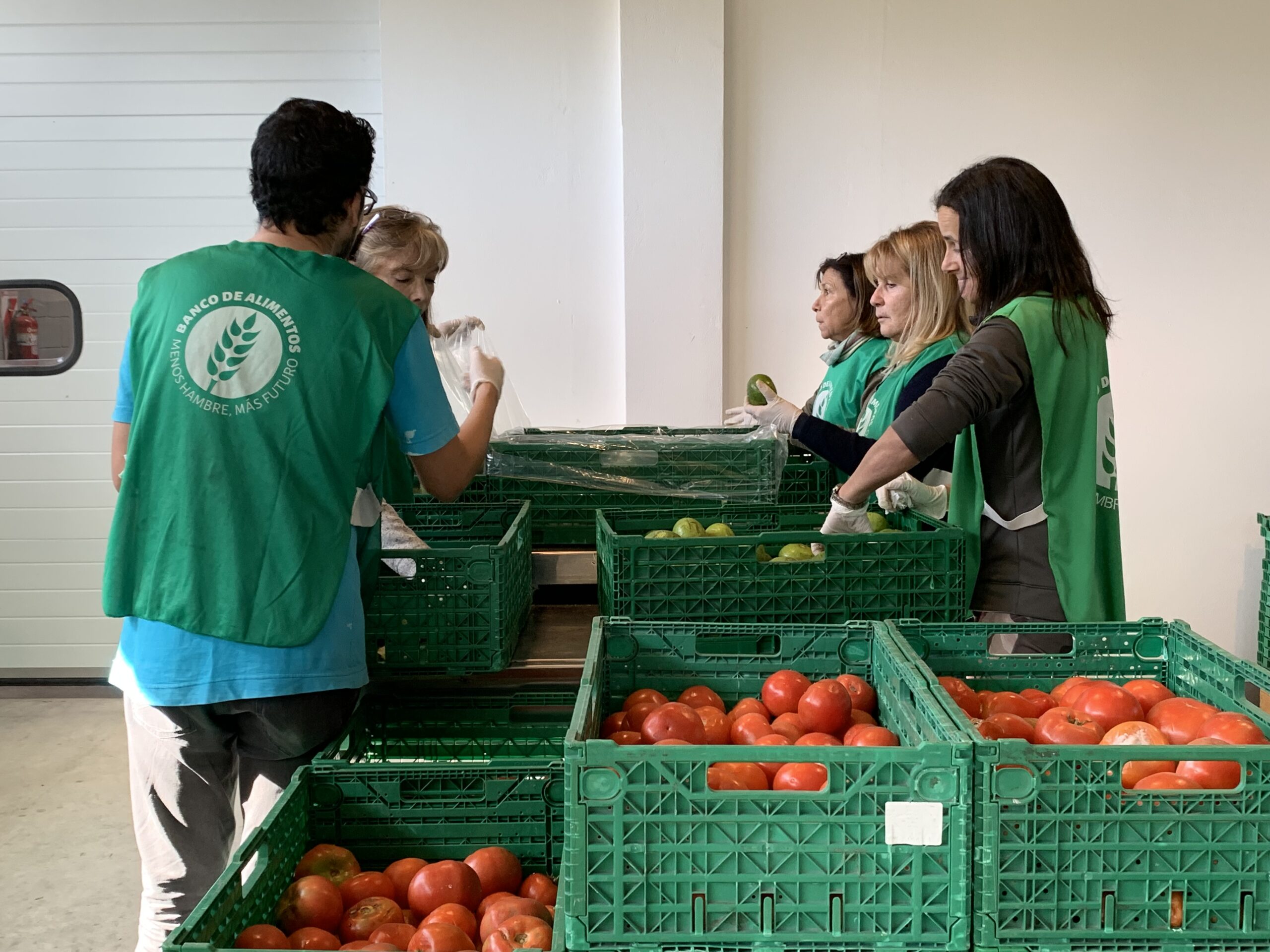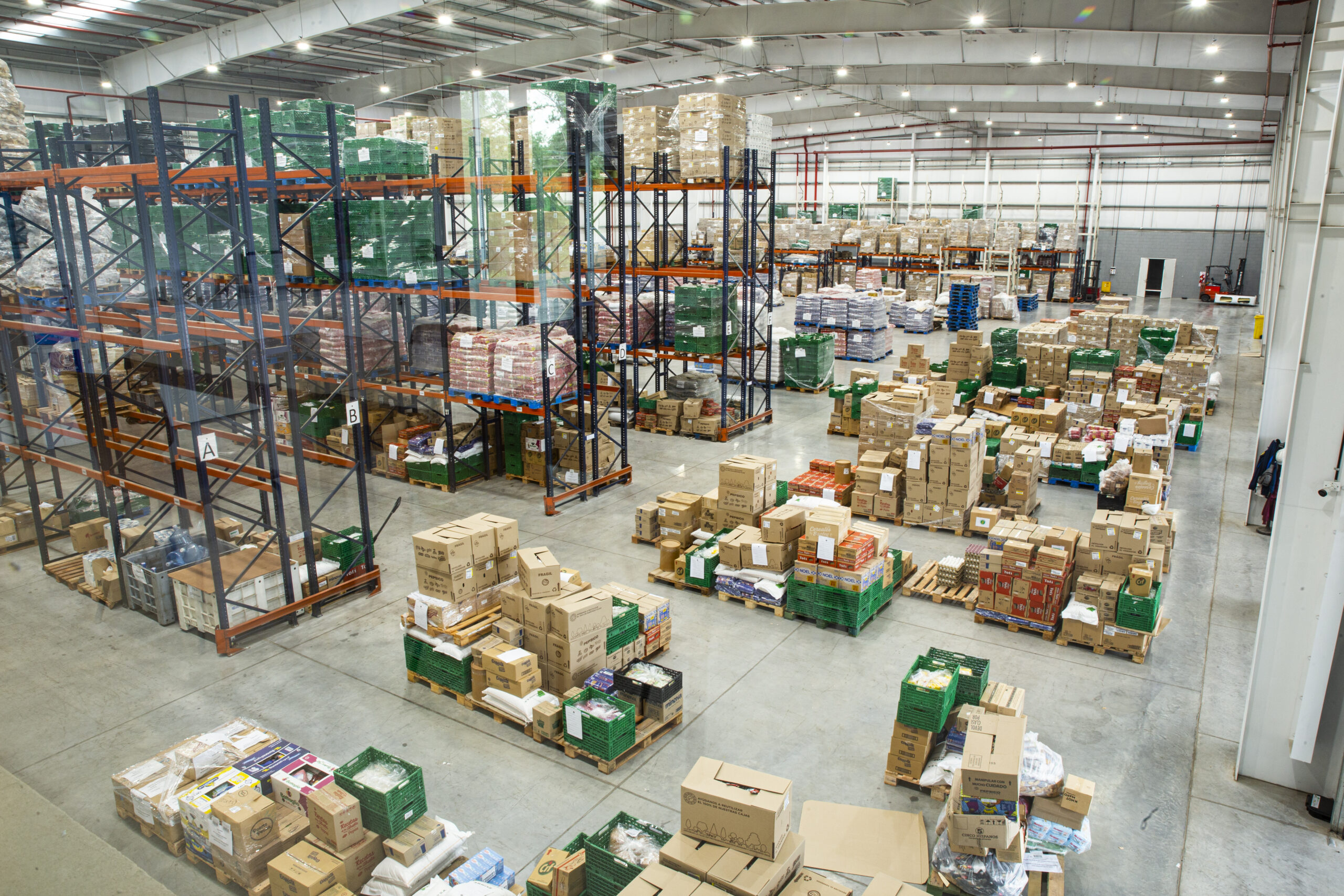The work of an NGO with double benefit: preventing food waste and combating hunger
This is the Banco de Alimentos de Buenos Aires (‘Buenos Aires Food Bank’), which receives food that, despite being in perfect condition, would have been discarded as waste. The recovered food is donated to social organizations


By Paula Galinsky
Hungry people while food is being wasted. This dramatic scenario motivated a group of residents of Buenos Aires City, Argentina, to create a Food Bank. This happened during the crisis of 2001, and this group, which kept growing, became the link between those who have food to donate and those who need it.
Fernando Uranga, general director of the Banco de Alimentos de Buenos Aires (“Buenos Aires Food Bank’), reports that they collaborate with children and elderly homes, soup kitchens, rehabilitation centers, and religious organizations. Along this path, they not only donate food but also prevent waste.

They have 36 employees and rely on 350 volunteers per month to handle the receipt, sorting and distribution of food, tasks carried out in a huge warehouse (2,800 square meters) located in Benavídez, Buenos Aires Province.
Due to often being close to the expiration date, “it is necessary to have a strong internal structure and good resources”, comments Uranga.
They must be quick to decide where to send what they receive, to value the products, and to ensure they reach their destination in the best possible way. “We send precise amounts, more than ever, with the intention that the food is not wasted and to prevent consumption after expiration”, details the representative of the Banco de Alimentos (‘Food Bank’) about the associated responsibilities.
“Acting as an intermediary implies establishing trust bonds with both sides and being 100% transparent with the information,” explains Uranga, who details that, during 2023, they received donations from 154 companies, distributed among 1,030 social organizations.
The story of Lar San Roque
One of the organizations that feels the impact of the Banco’s work is the Hogar de Ancianos San Roque (‘San Roque Elderly Home’) in Banfield, which has a 78-year history and was created by young people from the Acción Católica de la Catedral de Lomas de Zamora (‘Catholic Action of the Cathedral of Lomas de Zamora’). “Initially, it functioned as an asylum for vulnerable people, but over time, it has transformed into the home where 80 elderly people now live”, says Jorge Maloberti, president of San Roque.
“Some of the residents came to the home through Pami, others came in privately and there is a third group of people who benefit from scholarships”, explains Maloberti, who laments that the numbers don’t add up. “That’s why the contribution of the Banco de Alimentos (‘Food Bank’) is fundamental for us: we have been working with them for 15 years”, he emphasizes.
“We ask the Banco de Alimentos (‘Food Bank’) for many non-perishable foods, such as rice or pasta. We also receive dairy products, legumes, and vegetables”, he adds.
The figures of food rescue
During 2023, 4,640,000 kilograms of food were recovered, that fed 350,000 people in the Capital and the Buenos Aires Conurbation.


Often, companies donate products that are about to expire when they realize they cannot market them in time. In other cases, this is related to changes or errors in packaging.
“Now, for example, we are receiving tomatoes from La Plata and carrots from Necochea. The challenge here is to quickly activate logistics and decide where to send these products”, comments Uranga.
And he adds: “We also receive calls from companies with yogurts and milk with a 5-day shelf life. In some cases, we send the goods directly to the organization we know needs them. We evaluate each situation individually”.
It may seem strange, but when asked about the dream or goal that the Banco de Alimentos (‘Food Bank’) aims for, Uranga responds that his wish is “to cease to exist.” “The latest data from the Observatorio de la Deuda Social Argentina de la Universidad Católica Argentina (UCA) (‘Argentine Social Debt Observatory of the Argentine Catholic University’) estimate that, in January of this year, poverty reached 57.4% of the Argentine population. The goal is that no one suffers from hunger, and then we can close happily, but we know we are far from that happening”, he asserts.
“The Banco de Alimentos (‘Food Bank’) is essential to support those who cannot reach. And, at the same time, companies also benefit because we help them avoid waste and ensure that what they donate will be well utilized”, Uranga concludes.
How to collaborate
For donations, you can contact the Bank through the website www.bancodealimentos.org.ar.


